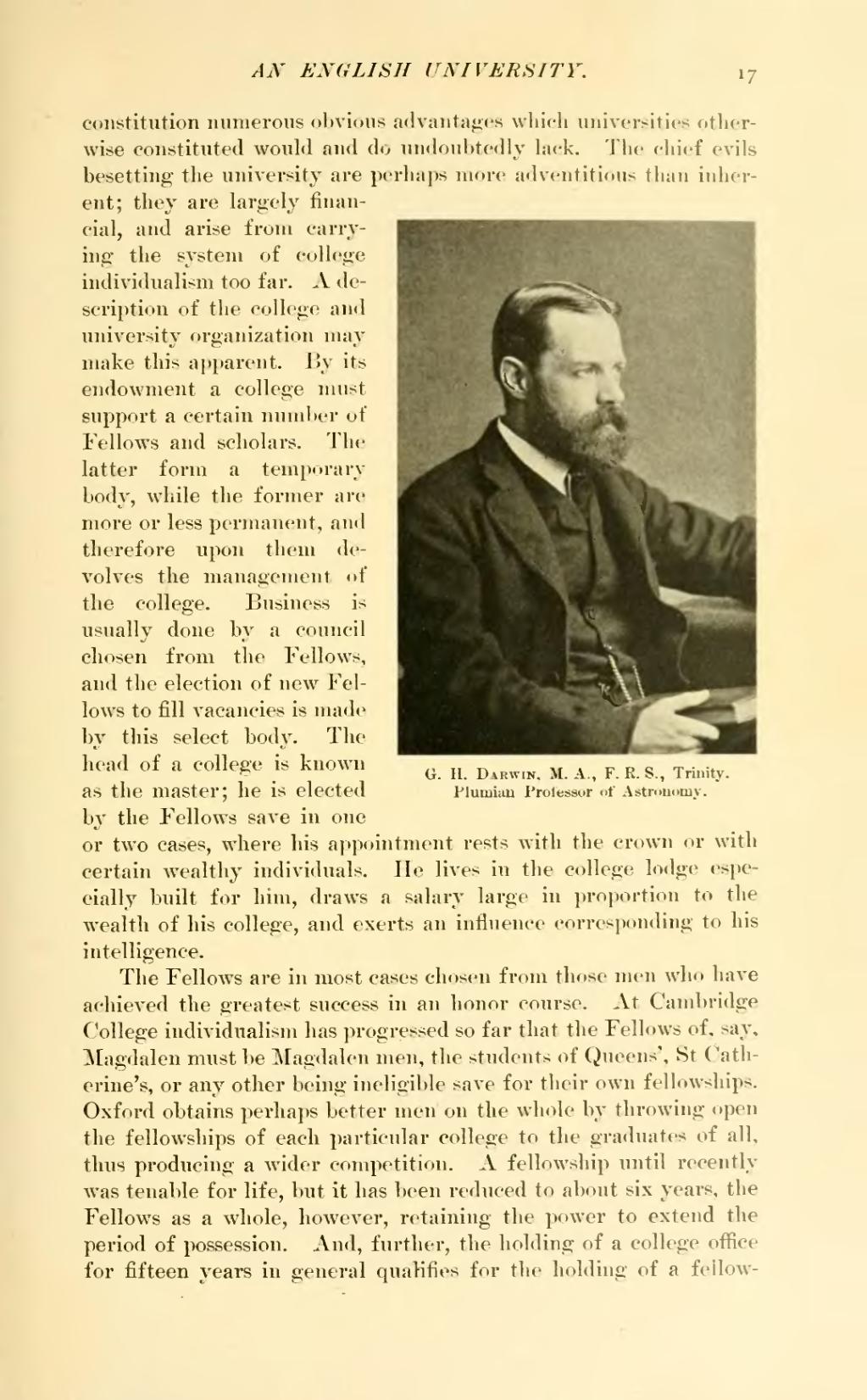constitution numerous obvious advantages which universities otherwise constituted would and do undoubtedly lack. The chief evils besetting the university are perhaps more adventitious than inherent; they are largely financial, and arise from carrying the system of college  G. H. Darwin, M. A., F. R. S., Trinity.
G. H. Darwin, M. A., F. R. S., Trinity.
Plumian Professor of Astronomy. individualism too far. A description of the college and university organization may make this apparent. By its endowment a college must support a certain number of Fellows and scholars. The latter form a temporary body, while the former are more or less permanent, and therefore upon them devolves the management of the college. Business is usually done by a council chosen from the Fellows, and the election of new Fellows to fill vacancies is made by this select body. The head of a college is known as the master; he is elected by the Fellows save in one or two cases, where his appointment rests with the crown or with certain wealthy individuals. He lives in the college lodge especially built for him, draws a salary large in proportion to the wealth of his college, and exerts an influence corresponding to his intelligence.
The Fellows are in most cases chosen from those men who have achieved the greatest success in an honor course. At Cambridge College individualism has progressed so far that the Fellows of, say, Magdalen must be Magdalen men, the students of Queens', St Catherine's, or any other being ineligible save for their own fellowships. Oxford obtains perhaps better men on the whole by throwing open the fellowships of each particular college to the graduates of all, thus producing a wider competition. A fellowship until recently was tenable for life, but it has been reduced to about six years, the Fellows as a whole, however, retaining the power to extend the period of possession. And, further, the holding of a college office for fifteen years in general qualifies for the holding of a fellow-
